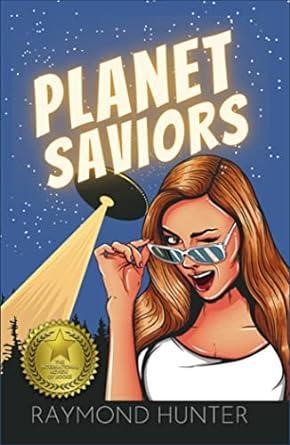Science fiction is a genre brimming with endless possibilities, allowing writers to explore futuristic worlds, advanced technologies, and extraordinary scenarios. But where do these imaginative ideas come from?
Here’s how to mine daily life for fresh sci-fi book ideas.
How to Find Fresh Sci-Fi Book Ideas
Observe Your Surroundings
Your daily environment is a goldmine of inspiration. Pay attention to the small details around you, from the gadgets people use to their interactions and behaviors. Consider how these elements could evolve in the future.
Notice how people are glued to their smartphones. What if this dependency leads to a future where humans can no longer function without direct neural interfaces with technology?
Stay Updated with Technological Advancements
Keeping up with the latest technological trends can spark many “What if?” scenarios. Technologies that seem cutting-edge today might be commonplace in the future, and speculating on their development can lead to unique story ideas.
Follow advancements in artificial intelligence. What if AI becomes so advanced that it starts to exhibit emotions and demands rights, leading to a societal upheaval?
Experiment with Different Settings
Settings play a crucial role in sci-fi. Experiment with various futuristic settings, from dystopian worlds to utopian societies, and consider how they impact the characters and plot.
Set your story in a post-apocalyptic world where survivors have developed advanced technologies to cope with the harsh environment. How do these technologies shape their daily lives and social structures?
For instance, Raymond Hunter’s latest sci-fi, “Planet Saviors,” depicts a utopian society called Mund that’s similar to Earth but technologically advanced. Stella is searching for a solution to save Mundians from extinction, and according to her, Earthlings are the answer.

Explore Societal Changes
Societal changes, such as shifts in politics, culture, or social norms, can provide a rich foundation for speculative fiction. Think about how current trends could shape future societies.
Consider the growing awareness and action around climate change. What if future societies live in completely sustainable, eco-friendly cities but at the cost of personal freedoms?
Draw from Personal Experiences
Your personal experiences and emotions can add authenticity and depth to your sci-fi stories. Reflect on moments of joy, fear, or curiosity, and imagine them amplified in a futuristic context.
Recall a time when you felt disconnected in a crowded place. What if, in the future, people live in isolation pods to prevent the spread of diseases, leading to a fragmented society?
Engage with Other Creative Works
Books, movies, and other forms of creative media can be a great source of inspiration. Engage with various genres and think about how you could twist or combine different elements.
Watch a documentary about space exploration. What if you create a story where space travelers discover a new planet with its own unique ecosystem and sentient life forms?
Use “What If?” Scenarios
The “What if?” technique is a powerful tool for generating sci-fi ideas. Start with a basic premise and expand on it until you have a detailed scenario.
What if humans could upload their consciousness into a digital realm? How would this affect relationships, identity, and the concept of life and death?
Order “Planet Saviors” by Raymond Hunter Today!
Unleash your creativity and explore endless possibilities with your sci-fi writing.
If you’re looking for inspiration, check out Planet Saviors by Raymond Hunter. This gripping novel will spark your imagination and provide a fresh perspective on the genre.
Order your copy today and dive into a world of speculative fiction like never before!




